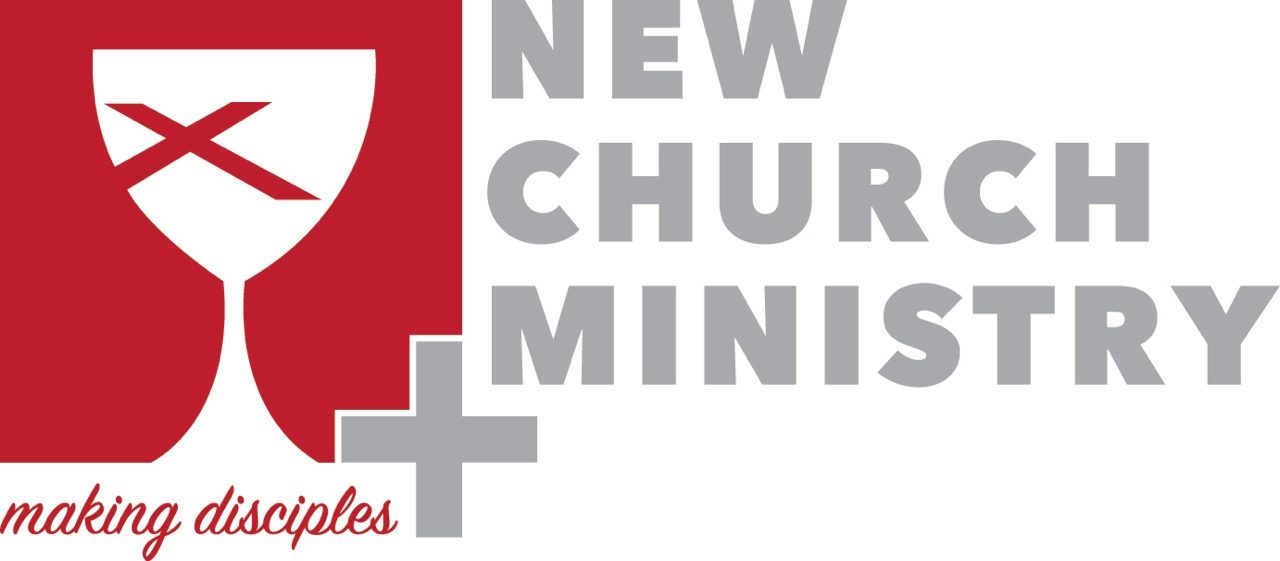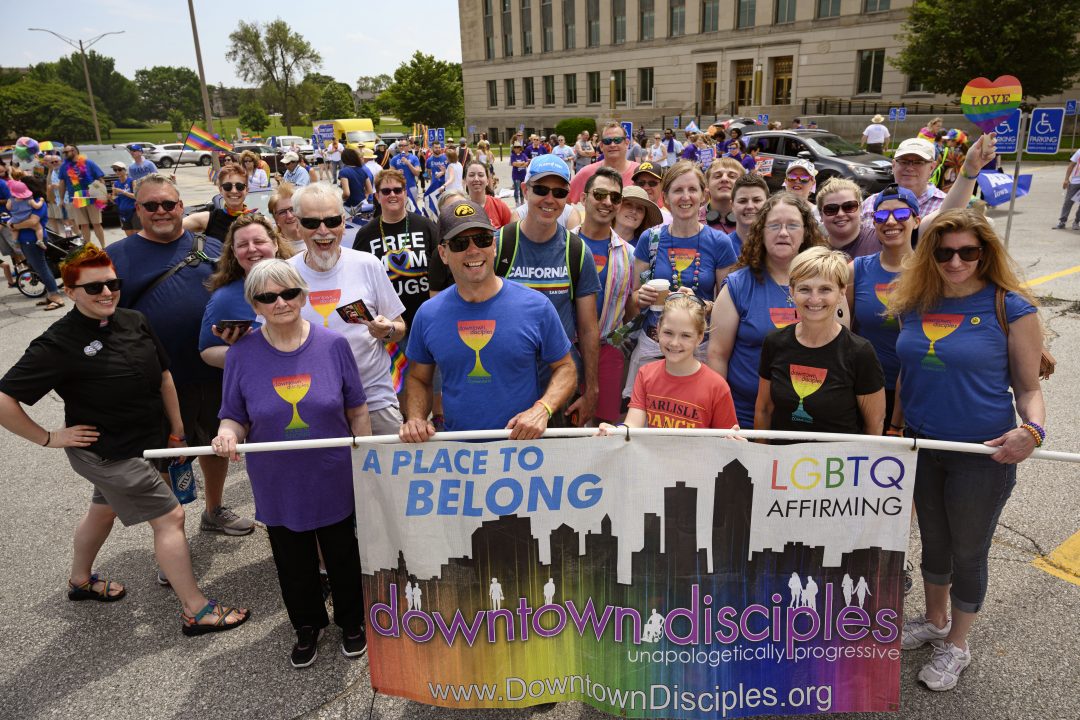The New Church Ministry team met Rev. Debbie Griffin, the Senior Minister of Downtown Disciples, last summer at General Assembly (GA). Since the pastor’s congregation is based in Des Moines, IA, it offered worship services, hosted pre-assembly activities for general ministries, prepared a meal for regional ministers, and chaired the local GA mission committee.
All of that as a new church planted in 2015.
To celebrate the culmination of the 2020 Vision goal to form 1,000 congregations within the first two decades of the 21st Century, we spoke with Rev. Debbie about Downtown Disciples.
How do you describe Downtown Disciples?
It’s a progressive faith community. We are LGBTQ+-affirming, and we proclaim Black Lives Matter. We say that every time we gather, because it matters to us. We are a new church formed by the Christian Church (Disciples of Christ) in the Upper Midwest Region.
Why did you plant Downtown Disciples?
I was about to give up on the Church. I love many things about it. I was raised in the Disciples Church. I love the faith. I love the stories of Jesus. But I was really frustrated that some folks within the Church were really challenging progressive theology. I just felt like the Church wasn’t being the inclusive, boundary-breaking, justice-loving presence of Christ in the world. I thought I would just go work in the nonprofit sector. I secured a position with the Interfaith Alliance of Iowa when I was called by the Region to consider a small congregation that needed a short-term interim minister. I started serving that church full of beautiful people and they really changed me. They were doing such great ministry, in western Iowa of all places, which is very conservative. This small church of faithful people was doing amazing work in the love of Christ. They had two queer women in leadership positions. They were serving a home-cooked meal to more than 100 people every Wednesday night, no questions asked, opening their doors and not pressuring people to be church in a certain way. A diverse group of people came for many reasons. Relationships were built. It was just organic, and it was ministry. They gave me hope for the Church. I thought to myself, “If this can happen in western Iowa, it can certainly happen in downtown Des Moines.” I thought, “there must be more people like me, who love Jesus and miss faith community, but whose theology is too progressive for most people.” So, I laid out a vision of starting as an LGBTQ+-affirming book club. We started with a book called Saving Jesus From the Church by Robin Myers, who’s a UCC pastor. People came! We read one book, and then we read another book. Then we started serving meals at the homeless shelter down the street. Then we walked in the Pride Parade. Then we started doing a variety of other activities, going to our city council about policing and racial profiling. Pretty soon someone said, “When are we going to worship?” That’s when I knew we had a church.
The Pentecost Offering allows local Disciples to support new church plants like yours, across the United States and Canada. What does the Pentecost Offering mean to you as a church planter?
We wouldn’t exist if it weren’t for the Pentecost Offering. Downtown Disciples wouldn’t have had a place to worship that worked for us. We needed to be in a neutral place, because we’re reaching out to people who’ve been wounded and excluded from church. Also, we wanted to be in an urban setting. That costs money. Plus, we needed a full-time pastor to make this work. The Upper Midwest Region has been exceptionally supportive of us. Ultimately, they set out a three-year plan of sustainability for us. And the other people in our Region have been just as supportive of this amazing ministry.
The 2020 Vision prioritized forming 1,000 congregations in 1,000 different ways. What is the “way” your faith community demonstrates that diversity?
We didn’t start with worship. When we did decide to start worshiping, we were clear that we didn’t want to do so in a typical church building. At Pentecost, we’ll be five years old, and we’ve had three worship locations: a community center, a loft-type space above a music venue, and now a bakery. We also started out with worship on Sunday nights. Then as we grew, we added a Sunday morning worship. We also have a podcast called Like Micah, because our mission is Micah 6:8 – “do justice, love kindness, walk humbly.” We tell stories of our faith. We like to say we’re nimble, and we respond to the needs of the community. Most of our people were not coming to us through worship. They were coming to us at the wine bar when we were having Word Up Wednesdays. They were coming to us for Bible Geeks on Tuesday mornings at the local hip coffee shop. We were meeting up at a laundromat where we would just do random acts of kindness and hang out and be there with children’s books and food and quarters. People found us at other places that were easier entry points, and then once they could trust us, they would move to worship.

How would you define the progressive Christianity you promote?
We spell it out in our website. People who have been wounded or excluded by the church, need to know who you are. I’m specifically referring to LGBTQ+ people. They have gone to churches that say they’re welcoming, until you want to marry your beloved; or you want to be a leader in the church; or you want to attend seminary. So, when we say progressive, we mean LGBTQ+-affirming; we proclaim Black Lives Matter; we are curious about other faiths. We do not condemn or judge others, because Jesus calls us not to do that. And we are passionate about social justice.
What role do new faith communities have in the church?
They are the heartbeat of the church right now. I know that in the Upper Midwest Region, other Disciples churches that identify as traditional look to us. Oftentimes people worry the new churches are going to “replace” the traditional churches. I don’t see it that way. I see that we can be an outreach for traditional churches who see in us something that they love, but they can’t be right now. So, we become an outreach of their ministry. We currently have one church in the Upper Midwest Region that supports us financially. They send us part of their outreach budget. They send us a check every quarter because they can identify that we can do some things that they can’t do right now. I think we’re the hope for, not only people who have been excluded and wounded by church, but for traditional church people who see in us an opportunity to partner and extend their ministry.
Do you have any advice for people looking to plant a church?
What God is doing in new church is different in every single place. What worked for Downtown Disciples was unique to what God was doing here and is doing here in our time and our place. New church planting here is not the cookie-cutter for other new churches anywhere else. Still, some things are true for all church plants. I would say, don’t do it alone; listen to the Spirit and to the people who you’ve gathered. We wouldn’t be who we are without the people who gathered with us, allowing the Spirit to work through them.
How is your congregation responding to the coronavirus?
We worship and gather virtually. We share what type of bread we are breaking together in our homes during communion. We raised $1,000 for PPE, donating those funds to our local hospitals that need life-saving equipment. We continue to deliver supplies to our homeless neighbors, wearing face masks, gloves, and staying at a safe distance. We write cards to our friends who are isolated. We cook and deliver meals, flowers, and groceries to members who are quarantined or at high risk. In summary, we are still a movement for wholeness in this fragmented world. The Spirit still calls and empowers us to “do justice, love kindness, and walk humbly together.”

New faith communities like Downtown Disciples are supported by the Pentecost Offering. Half of the offering supports New Church Ministry to coach and train new church leaders. Half supports local Regions to sustain new churches. Join us in celebrating the 2020 Vision by making a gift through your congregation or the DMF website. This Special Day Offering is received on May 31 and June 7.

